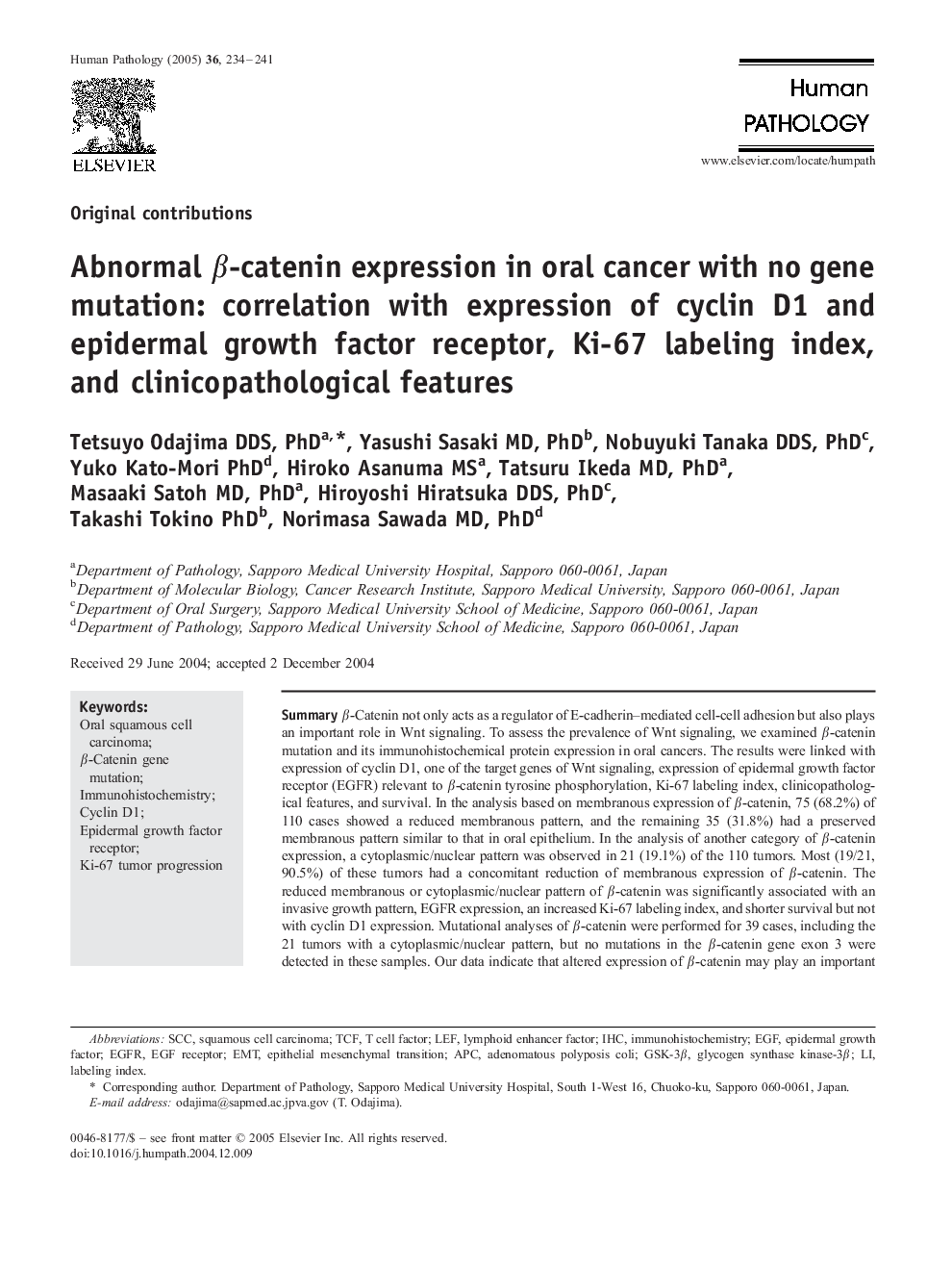| Article ID | Journal | Published Year | Pages | File Type |
|---|---|---|---|---|
| 9365482 | Human Pathology | 2005 | 8 Pages |
Abstract
β-Catenin not only acts as a regulator of E-cadherin-mediated cell-cell adhesion but also plays an important role in Wnt signaling. To assess the prevalence of Wnt signaling, we examined β-catenin mutation and its immunohistochemical protein expression in oral cancers. The results were linked with expression of cyclin D1, one of the target genes of Wnt signaling, expression of epidermal growth factor receptor (EGFR) relevant to β-catenin tyrosine phosphorylation, Ki-67 labeling index, clinicopathological features, and survival. In the analysis based on membranous expression of β-catenin, 75 (68.2%) of 110 cases showed a reduced membranous pattern, and the remaining 35 (31.8%) had a preserved membranous pattern similar to that in oral epithelium. In the analysis of another category of β-catenin expression, a cytoplasmic/nuclear pattern was observed in 21 (19.1%) of the 110 tumors. Most (19/21, 90.5%) of these tumors had a concomitant reduction of membranous expression of β-catenin. The reduced membranous or cytoplasmic/nuclear pattern of β-catenin was significantly associated with an invasive growth pattern, EGFR expression, an increased Ki-67 labeling index, and shorter survival but not with cyclin D1 expression. Mutational analyses of β-catenin were performed for 39 cases, including the 21 tumors with a cytoplasmic/nuclear pattern, but no mutations in the β-catenin gene exon 3 were detected in these samples. Our data indicate that altered expression of β-catenin may play an important role in tumor progression through increased proliferation and invasiveness under EGFR activation. However, mutations of β-catenin do not appear to be responsible for tumor development and abnormal expression of β-catenin in oral cancers.
Keywords
EGFCyclin D1SCCTCFAPCGSK-3βEGFRadenomatous polyposis coliepithelial mesenchymal transitionImmunohistochemistryIHCEMTlabeling indexlymphoid enhancer factorepidermal growth factorT cell factorLefSquamous cell carcinomaoral squamous cell carcinomaGlycogen synthase kinase-3βEGF receptorEpidermal growth factor receptor
Related Topics
Health Sciences
Medicine and Dentistry
Pathology and Medical Technology
Authors
Tetsuyo DDS, PhD, Yasushi MD, PhD, Nobuyuki DDS, PhD, Yuko PhD, Hiroko MS, Tatsuru MD, PhD, Masaaki MD, PhD, Hiroyoshi DDS, PhD, Takashi PhD, Norimasa MD, PhD,
